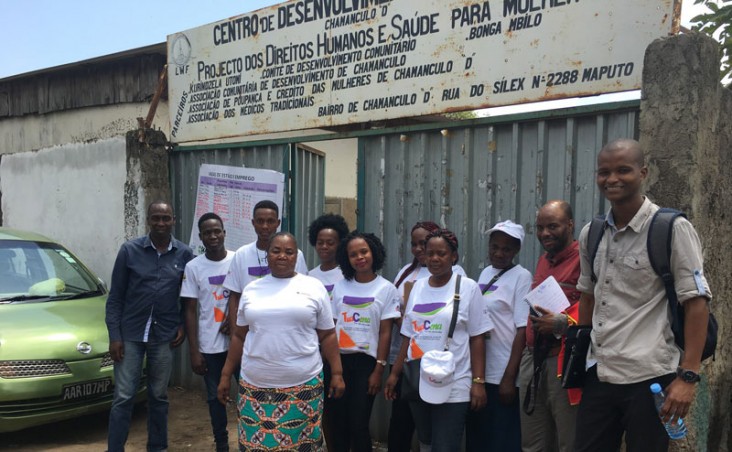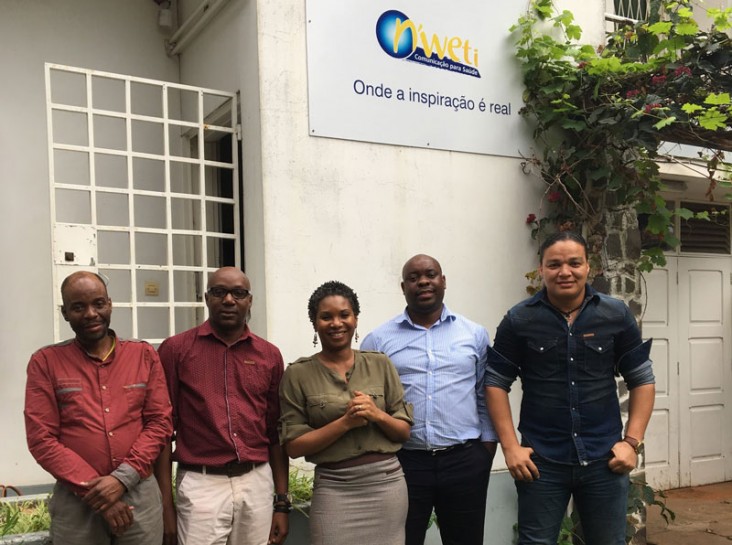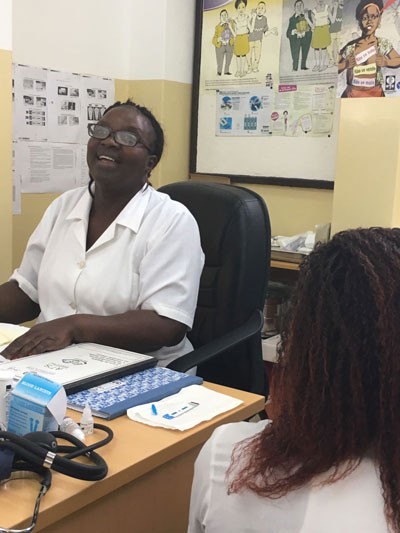- What We Do
- Agriculture and Food Security
- Democracy, Human Rights and Governance
- Economic Growth and Trade
- Education
- Ending Extreme Poverty
- Environment and Global Climate Change
- Gender Equality and Women's Empowerment
- Global Health
- Water and Sanitation
- Working in Crises and Conflict
- U.S. Global Development Lab

N’weti Builds Capacity for Community Advocacy and HIV Testing
Ending HIV and AIDS is an all-inclusive effort that relies on the knowledge and engagement of civil societies. Since 2013, the U.S. Agency for International Development (USAID) has worked to implement the U.S. President’s Emergency Plan for AIDS Relief’s (PEPFAR)’s Local Capacity Initiative (LCI), an interagency initiative focused on providing direct support to local civil society organizations (CSOs) to strengthen community advocacy around HIV and AIDS and to enhance community ownership and sustainability in 14 countries. In Mozambique specifically, the prime LCI CSO is showing substantial success in addressing UNAIDS 90-90-90 goals.

N’weti, a well-respected CSO in Mozambique with a strong background in health advocacy and community engagement, aims to monitor the quality of health services for people living with HIV through means of system strengthening, health promotion, improved access to HIV and AIDS services and health advocacy. Based on results from LCI program data collection, N’weti’s community outreach efforts are making a difference not only in the lives of the community, but also in the spread of HIV.
In support of the first goal of the UNAIDS 90-90-90 framework – 90 percent of those who are HIV-positive know their status – N’weti continues to strengthen the capacity of 27 community-based organizations (CBOs) to mobilize communities to advocate for quality health services and to get tested for HIV. With guidance from N’weti, these CBOs trained 94 facilitators and designated 17 district supervisors. These facilitators and district supervisors engage local communities in health advocacy and inspire community accountability, particularly for HIV and AIDS, through community dialogues and door-to-door visits within 12 districts of Mozambique.
“Being a community facilitator is being the support these people need because many of them feel so isolated,” said Julietta Mondlane, a door-to-door facilitator, “When I arrive to their homes, they look at me and say things like ‘You are the support I needed,’ ‘This support must have been sent by God,’ and ‘I don’t know what I’d do without you.’” Facilitators are trained on topics such as HIV, reproductive health, gender-based violence, patient rights and referral skills. They work with community leaders to best address the needs of the community, targeting the needs of young adults and people living with HIV. More specifically, door-to-door facilitators work in pairs, distributing themselves across neighborhoods, to provide home-based health education, referrals to needed health services and to recruit for the community dialogues. Community dialogues focus on community ownership of health, educating participants on their patient rights, encouraging community advocacy and facilitating discussion between community members and their healthcare providers on the community’s needs.

Much of the health service-related data is collected through the Community Scorecard (CSC). Championed by N’weti, the CSC has become a nationally recognized assessment tool that is used by community members and healthcare providers to assess the quality and availability of health services using a set of indicators informed by existing literature and adapted by N’weti. The CSC is completed yearly to prioritize issues for community leaders and members to address and is also incorporated in the Mozambique’s national annual planning work. N’weti uses CSC data to track community progress, create community accountability, advocate for community needs and inform future program planning.
Within both door-to-door visits and community dialogues, facilitators provide referrals to local clinics for needed health services, including HIV testing and counseling. These referrals are currently tracked by the facilitators in 7 of the 12 Districts N’weti works in and in youth-friendly health centers in order to examine the rate of successful referrals and to support community members. N’weti uses this data to discover where the hard-to-reach populations are located and how to target their mobile testing brigades. N’weti recently used the referral data to conduct an analysis to map where HIV-positive cases are coming from and open the conversation of how the community can further address areas of high prevalence.
Between 2015 and 2016, N’weti enabled almost 29,000 men and women to receive HIV testing and counseling through referrals to health clinics and mobile testing brigades. Of those tested, 87 percent were between the ages of 15 and 24, of which 66 percent were women and 21 percent were men. The number of those tested in 2016 more than tripled from the number of those tested in 2015. Those who test HIV-positive or knew their positive status prior to facilitator visits are provided additional support through biweekly visits. Through this facilitator follow-up, N’weti recently started tracking the retention in care for those who test positive and will soon have a data to share.
Overall, program data shows an increase of community advocacy for issues pertaining to health and HIV, improved community health-seeking behavior and an increased capacity for community monitoring by CBOs. N’weti demonstrates an exemplary model for LCI and for the impact of community investment, which are both integral to USAID’s work, under PEPFAR, to address the UNAIDS 90-90-90 goals through development of community ownership and community advocacy.







Comment
Make a general inquiry or suggest an improvement.